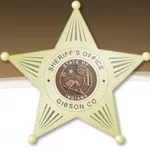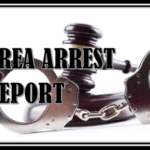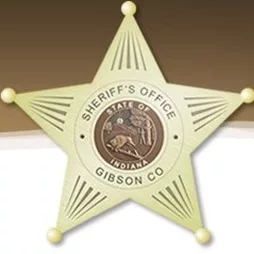(Left to right: SANE Nurses Paige Harrawood, RN and Jessica Devine, RN. )
A woman is brought to the hospital’s emergency department with signs of domestic abuse and sexual violence. She is nervous, afraid, and alone. In a time when her life seems hopeless, a specially trained forensic nurse is there to care for her physical and emotional wounds.
Forensic nurses at Daviess Community Hospital receive extensive training and are knowledgeable in injury identification, evaluation, and documentation. Many times, they first help a patient through their trauma, fears, and bodily injuries; then they collect evidence, work with legal authorities, and can testify in court when needed.
“This can be the worst day of their lives for some people; we want to ensure that they have the resources they need to move on with their lives,” said Jessica Devine, RN SANE at Daviess Community Hospital.
Forensic nursing has become one of the newest specialties recognized by the American Nurses Association, and it’s growing rapidly in many parts of the country. DCH is fortunate to have several nurses with SANE certification.
When helping a patient, these nurses collect a comprehensive medical history, including health and sexual history, as well as information about the things that have happened to them in the past. The nurse uses these varied pieces of information in order to apply forensic science and figure out what samples to take. If someone has been drugged or ingested a lot of alcohol, the nurse helps the patient work through that, too. They then have to figure out how to identify samples that might be helpful to the investigative process.
What Qualities Do You Need To Be A Forensic Nurse?
“It is taking care of people that are trauma victims. It’s being able to give them the resources they need and reassurance that they are physically OK,” said Chrissy Wininger, ER Manager. “Most of these cases never make it to the courtroom; the focus can never be on what the criminal justice system will do with this. “
Although positive outcomes can result from working with such patients, they may come to the forensic nurse feeling extremely overwhelmed, and the nurse must tailor the exam to the patient’s comfort level.
The job takes someone highly compassionate like Jessica Devine, RN at DCH. “I chose to become a SANE nurse because I truly enjoy helping these patients and offering my service,” said Devine. “I am looking into taking the pediatric class in the near future. I feel like I could really help out the community and provide a service here at DCH so that these victims would not have to be transferred to another facility several miles away.”
Devine says she hopes to start a Sexual Assault Response Team (SART) in the near future. This is a group of individuals that come together from different areas, such as the medical community, law enforcement, and victim advocacy groups, to help sexual assault victims after the assault. Assistance may include forensic evidence collection, legal expertise, and emotional support. Many SART’s also address the prevention of sexual assault and various related issues within their local communities.
Where Do Forensic Nurses Work?
Most SANE-trained forensic nurses are in hospitals. However, nearly twenty-five percent are working in community settings.
Forensic nurses can be involved in death investigations, and they can also work with coroners. They can take part in the investigation of domestic violence cases, and some forensic nurses work in prisons to help care for prisoners who have been abused by other prisoners.
What Schooling/Certifications Are Needed To Become A Forensic Nurse?
IAFN (International Association of Forensic Nurses) offers two certifications for the Sexual Assault Nurse Examiner (SANE). The SANE-A is specialized for adults and adolescents, and the SANE-P is specialized for pediatrics. To earn certification, registered nurses must pass an examination; the exams are offered twice a year during the months of May and October, and may be taken at testing sites across the US and internationally.
To actually sit for the exam, applicants must meet the eligibility criteria determined by the Forensic Nursing Certification Board. Board certification is not a requirement to practice forensic nursing; however, in most cases, that certification assures employers that the nurse has the knowledge, experience, and professionalism to do the job well.
For more information about SANE nurses at DCH, please call 812-254-2760, extension 1301 or email jdevine@dchosp.org.













